Test results: Application restart
Website data
The application restart imrpovement tests are executed against a website with the following data:
Site content:
| Type of Content | Items count | Notes |
| Sites | 94 | Multisite |
| Languages | 41 | Multilingual |
| Pages | 14 883 | |
| Page Templates | 231 | |
| Control properties | 5,049,997 | |
| Permissions | 1,439,642 | |
| URL Data | 199,874 | |
| Form entries | 106,042 | |
| Media content | 66,567 | |
| Libraries | 1,127 | |
| Dynamic modules | 29 | |
| Roles | 217 | |
| Users | 600 | |
| Database size | 85,639 | in MB |
Test results
The test cover the different types of application restarts that can be performed within a Sitefinity application. The results show an overall improvement in the average time required for a restart operation to complete.
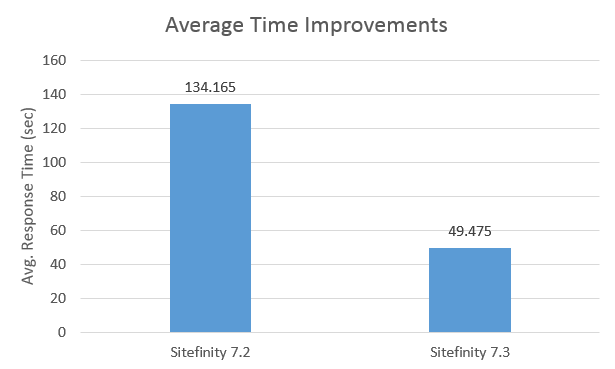
On average Sitefinity 7.3 has 63% improvement in the overall response time needed to complete a restart operation. This change is due to the introduction of improved database queries on application startup. Every restart operation within Sitefinity has seen a performance gain. For more information on the different types of restart operation, see Administration: Application restart.
Reset model
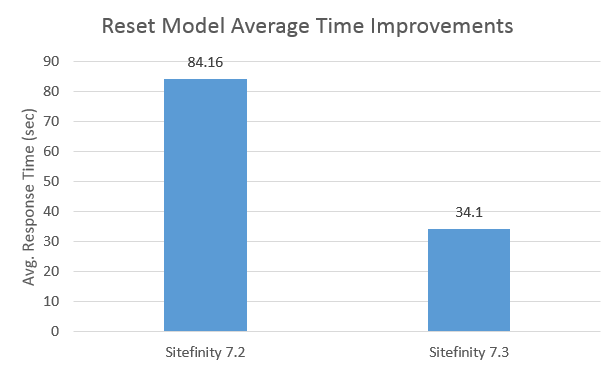
The average time for performing a database model reset in Sitefinity 7.3 has seen 60% decrease.
Soft restart
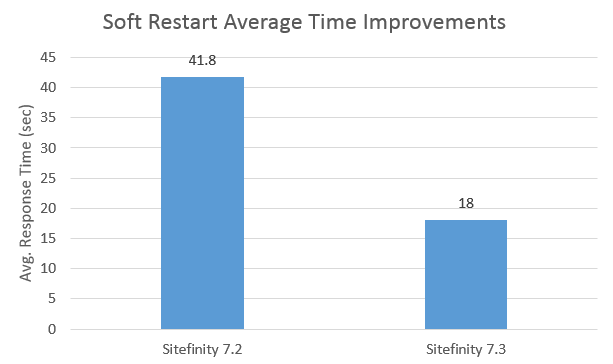
The average time for performing a soft restart in Sitefinity 7.3 has seen 57% decrease.
Reset model and soft restart
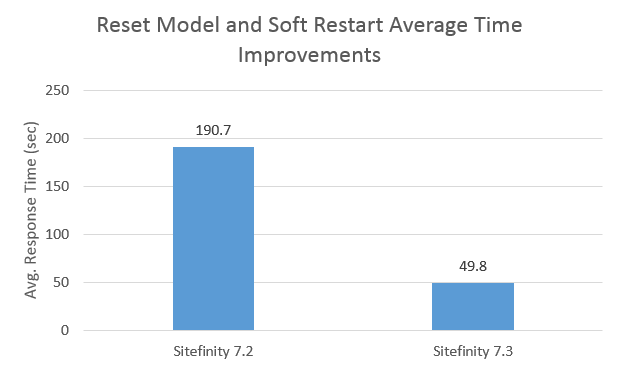
The combined operation of a database model reset and a soft restart in Sitefinity 7.3 has seen 74% decrease in the average time required to complete.
Full restart
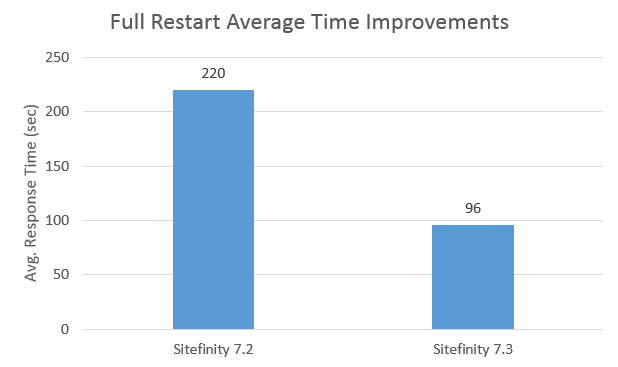
The average time for performing a full restart in Sitefinity 7.3 has seen 56% decrease.